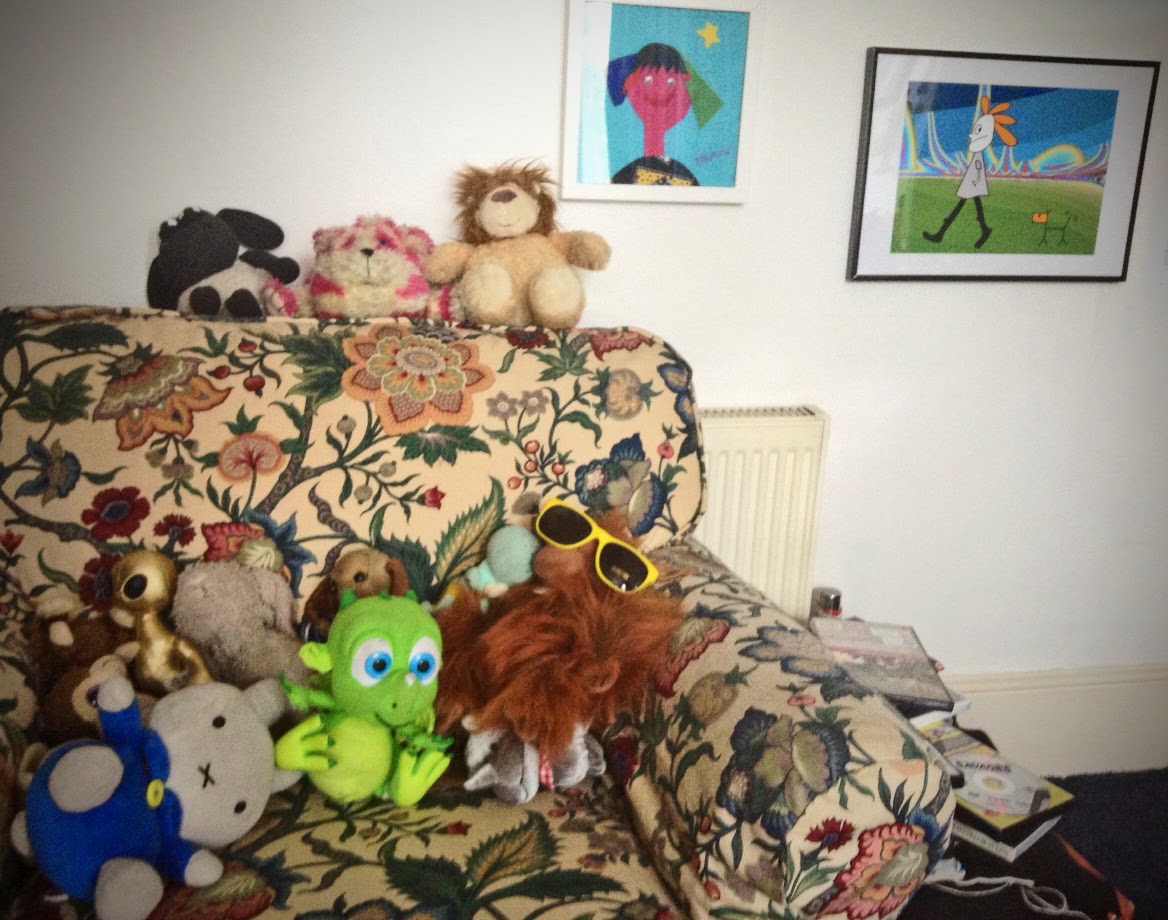Sunday, 29 June 2014
Stuff
In my caravan I have no tv, no wi-fi, just a few books, old illustrated maps of the continents, and a couple of my jazz bottles with Queen Ida and a blue Miles Davis. I also have silence. A silence so deep, sometimes it's almost scary. But mostly beautiful. I can stare at the flowery curtains and drift away into a natural meditative state. I also have a few pens and colours and paper. Sometimes I draw, sometimes I just sit outside reading travel books and feeling the grass with my bare feet. Everything is perfect. Then I come back home, open the door, and I am immediately overwhelmed by... stuff. I've accumulated so much stuff, books, cds, gadgets, art supplies, cameras, nick-knacks, pictures, canvasses, art magazines, sketchbooks, full and blank. I sit on my couch, shoving some of the fluffy toys and cushions out of the way and I stare at the blank tv with a sense of dismay and anxiety. Why? Because every single object requires a decision - namely, should I use it or not. And it entails further decisions to make, such as how to use it and why. The other source of anxiety is the fear of losing what I've got. Apart from physically losing something, there is the retrieving form of losing. I flicked through a Tate magazine that had an article on Malevich, and when I put the magazine into the recycling bin, I thought, "Now I am not going to remember Malevich, his work, his theories, his sputniks and planits." And that made me incredibly sad. I write, sometimes I write a lot, in notebooks, in my computer, on my phone. But where does all the stuff I write end up? How do I archive it for retrieval? The simple caravan life is lost in the city, with its deluge of information and stuff that should be used, retained, accessed, retrieved, remembered. And a flowery curtain is not enough to induce meditation under the bombardment of phone calls, emails, post, bills, magazines, tv. And then there are art galleries, exhibitions, sketching and photography outings. A sea of stuff.
I often wondered why monks choose gardens, ponds, rocks, mountains or the sea to meditate. I thought that was cheating. Too easy to go to a beautiful place, sit on a solitary bench in the sun and watch kois glide by in the pond, perhaps with dreamy wind chimes and birds singing in the background. Because then you go back to all your stuff, and your heartbeat is raised, by millions of stimuli and a sense of guilt and powerlessness. But someone explained to me that the more you expose yourself to calm, meditative environments, the easier it becomes to access that state, to remember it when you are surrounded by stuff. So here is what I learnt in two days on my caravan. I don't NEED stuff. I don't need to retrieve or archive anything apart from what gets automatically stored and catalogued in my memory. I will remember Malevich when I need to. Or not, and then I'll do without his sputniks and black paintings, because I will be engaged in something equally valuable. As to my writings, it will be a constant journey of rediscovery, like a goldfish in a bowl swimming past a castle. Oh what a beautiful castle.
Subscribe to:
Comments (Atom)

